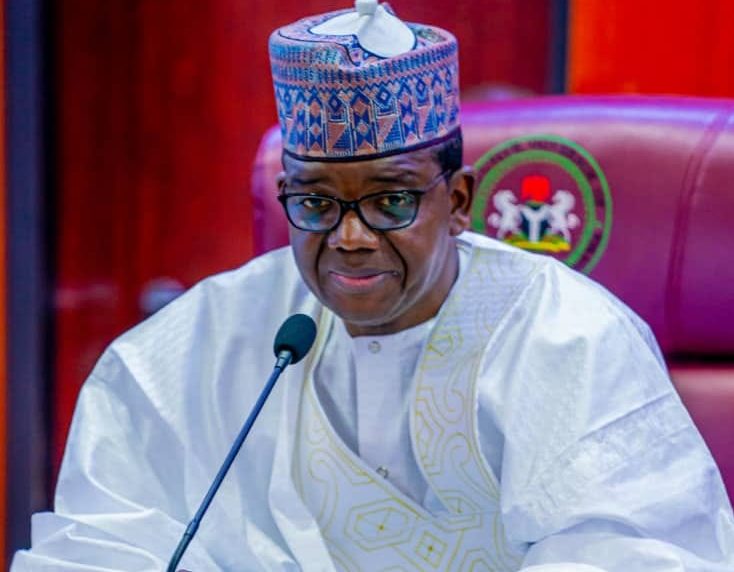The recent allegations against Minister of State for Defence, Bello Matawalle, present a significant challenge for the Bola Tinubu administration.
With accusations from notorious bandit leader Bello Turji and Zamfara State Governor Dauda Lawal, the integrity of Nigeria’s efforts to combat insecurity is at stake.
In a striking video, Turji claimed that the former governor of Zamfara, Matawalle, was complicit in the ongoing violence, suggesting that he provided vital resources to bandit leaders, including vehicles. Lawal’s serious charges highlight a troubling narrative of complicity within the very structures meant to uphold security and justice.
These claims, if substantiated, not only threaten the credibility of Matawalle but also raise broader concerns about the government’s commitment to addressing the root causes of insecurity in Nigeria.
Lawal’s call for Matawalle’s resignation is a necessary demand for accountability, one that could set a precedent for how the administration addresses allegations of corruption and complicity in crime.
Matawalle’s counter-accusation, claiming that Lawal is also linked to banditry, adds further complexity to the situation. This political back-and-forth underscores the urgent need for a transparent investigation to clarify the truth and restore public trust.
For the Tinubu administration, this moment is crucial. How it responds to these allegations will be indicative of its commitment to justice and the rule of law. The Nigerian populace deserves decisive action and clarity in the face of such serious charges.
Only through transparency and accountability can the government hope to reinforce its legitimacy and effectively combat the insecurity that continues to plague the nation.
The Defence Headquarters has stepped into the fray, stating that relevant agencies are investigating the allegations against Minister of State for Defence, Bello Matawalle, with the expectation that the findings will be made public.
Matawalle’s time as governor was marked by a controversial policy of negotiating with bandits. While this approach was initially seen as a means to restore peace, it is now being criticised as a strategy that may have enabled criminal activities to persist.
Matawalle has firmly denied any involvement in banditry, labelling the accusations as politically motivated. His supporters argue that these claims are part of a broader smear campaign aimed at damaging his reputation.
Matawalle maintains that his decision to engage in dialogue with bandits, a strategy also adopted by other governors dealing with similar issues, was intended to foster stability in Zamfara.
The gravity of these allegations cannot be overstated. Terrorism and banditry are not merely political concerns; they pose direct threats to the lives and safety of Nigerians.
Any implication that a senior government official could be involved in such activities warrants an immediate and thorough investigation.
Moreover, the allegations against Bello Matawalle raise serious questions about the government’s vetting processes for appointing individuals to high office. As the governor highlighted, there have been ongoing investigations into Matawalle’s conduct, including corruption claims.
This situation reflects poorly on the security vetting mechanisms in place for political appointees and raises significant concerns about accountability within the country’s political and security frameworks.
As Defence Minister, Matawalle is expected to play a pivotal role in shaping Nigeria’s security policy. Allegations of collaboration with bandits seriously undermine the government’s counterterrorism efforts.
These claims foster significant distrust between the government and the public. Nigerians, especially those in states like Zamfara that are acutely affected by insecurity, may rightfully question the government’s commitment to their safety and well-being.
Nigeria relies heavily on international cooperation, including aid and military partnerships, to combat terrorism, especially in its fight against Boko Haram and other insurgent groups. Allegations linking a senior official to terrorism could jeopardise these vital relationships, complicating Nigeria’s ability to secure necessary international support.
Foreign governments may begin to question whether their aid is being utilised effectively—or, worse, if it is inadvertently funding criminal activities.
The fight against terrorism demands unwavering commitment and strong moral integrity from its leaders. The serious allegations against Matawalle, whether factual or politically motivated, cannot be overlooked.
Demands for his resignation or suspension pending an investigation are crucial to maintaining public trust in the government.
The Tinubu administration must address these allegations head-on. Nigeria needs leaders who are not only competent but also above reproach, particularly when it comes to the security of its citizens.

